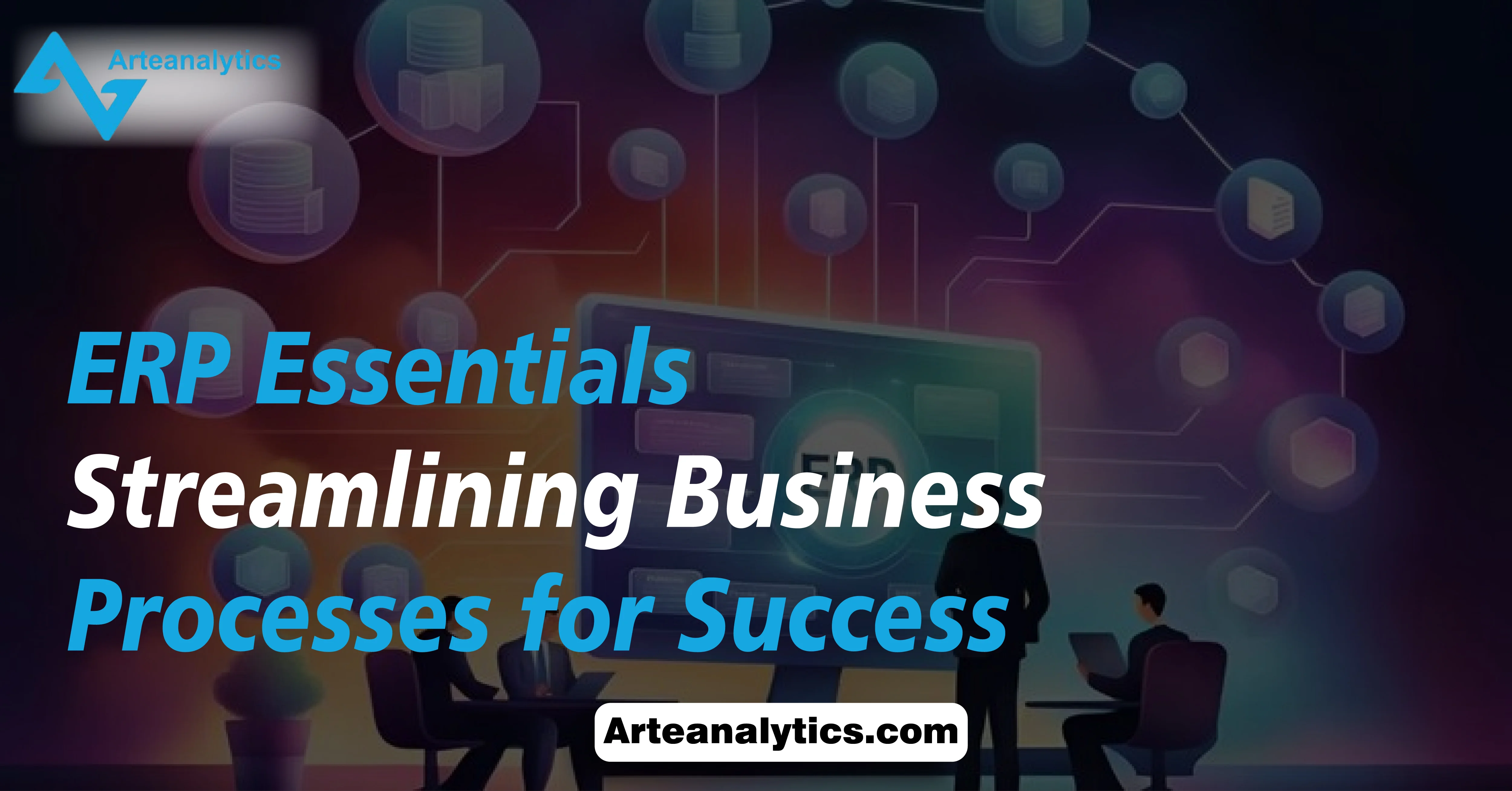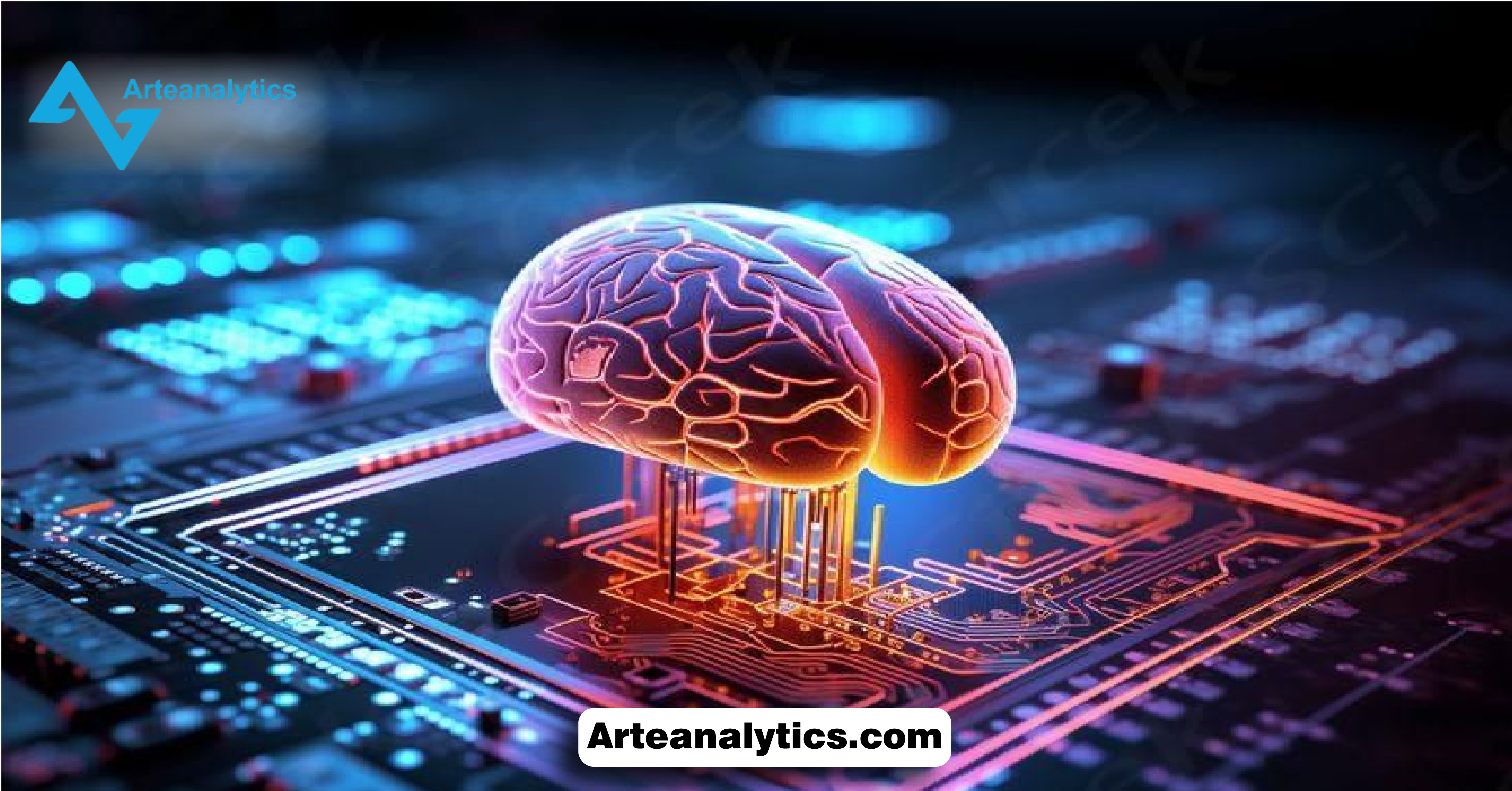ERP Essentials Streamlining Business Processes for Success
blog | Published on: 2025-01-17

Introduction
Enterprise Resource Planning (ERP) software aims to integrate operations across departments by streamlining processes across them and helping organizations manage key functions, including finance, supply chain and human resources on one unified platform. As such, ERP increases accuracy of data collection while increasing operational efficiency as it enables real-time analysis for better decision-making; companies can cut expenses while increasing collaboration. Furthermore ERP systems can scale with growth of businesses or adapt to ever-evolving demands of changing needs.
Running a business can be challenging. From tracking inventory and finances, overseeing finances, managing employees, and keeping customer relations satisfied, all the work involved can become exhausting. That is why Enterprise Resource Planning (ERP) should play such an integral part of any organization; whether yours struggles to run efficiently and smoothly or you're simply searching for an application to simplify processes - ERP could just be what's necessary!
What Is ERP?
ERP stands for Enterprise Resource Planning software which unifies different business processes in one cohesive system. Think of ERP as the central nerve center of your company that connects various departments such as sales, accounting and supply chain management together on one central platform.
ERP systems ensure workflows, data and communications are effectively managed within businesses to provide access to up-to-date information across departments. No longer must spreadsheets and software systems be managed separately - an ERP solution simplifies everything.
Why Is ERP Important?
ERP provides businesses with more than convenience; it provides clarity, efficiency, and an edge in competition - which makes ERP so essential in today's environment.
- Enhance efficiency: ERP increases efficiency by automating repetitive tasks (e.g. payroll processing or inventory tracking) so teams can focus on more strategic activities.
- High Data Quality: By having access to a centralized source of reliable and accurate information, teams are better able to operate with reliable and accurate information reducing mistakes and saving time and resources.
- Better Decision-Making: An effective ERP system equips managers with real-time analytics and reports for informed decision making.
- Scalability: They are also designed to meet the changing needs of emerging or growing companies alike. To keep pace with change, ERPs adapt seamlessly.
- Seamless Team Collaboration: Team Collaboration Through integration across departments, ERP facilitates improved communication and teamwork in your company.
Key Features of ERP Systems
ERP systems come equipped with various functions and can often be tailored to the unique requirements of businesses. Below are just a few essential features offered by these solutions:
Financial Management
ERP Financial Management Software allows organizations to systematically organize all aspects of financial operations - budgeting, A/R/R transactions and reporting - while keeping manual bookkeeping errors to a minimum.
Supply Chain Management (SCM)
Need help keeping track of your purchasing and inventory? ERP systems provide invaluable assistance in keeping track of inventory levels, anticipating demand and managing suppliers to keep your supply chain in great order.
Customer Relationship Management (CRM)
ERP applications typically include CRM capabilities to help improve customer relations. From tracking interactions between customers and your team to managing leads and analysing sales trends, CRM enables more efficient service provision.
Human Resource Management (HRM)
From onboarding employees to administering benefits and payroll, ERP handles all HR-related tasks efficiently in order to increase employee satisfaction and retention.
Project Management
ERP can also assist with project management activities by monitoring progress on particular tasks, assigning resources, monitoring timelines and setting budgets.
Benefits of ERP
Enterprise Resource Planning (ERP) Systems offer many advantages to businesses that help increase efficiency, productivity, and overall performance of the organization. Here are just a few advantages:
How Does work ERP system?
ERP systems collect, store and process information from all areas of your company - for instance:
- Integration: Departments can integrate their operational information to an ERP program that serves as the single source of truth.
- Automatization: The system automates workflows like invoice and order processing, saving time by eliminating manual tasks.
- Real-Time Insights: Analytics built-in to HTML0 provide real-time insight that enables managers to effectively detect issues or trends as well as identify areas for improvements.
An ERP system can be accessed either on-premise installations or the cloud, with cloud ERP (hosted online) becoming increasingly popular due to lower initial costs and its scalability - making it the ideal solution for smaller and medium-sized enterprises.
Do You Need ERP?
Once you understand the advantages offered by ERP, how can you know if it's suitable for your business? If you can identify with any of the examples provided below, investing in ERP could be worth your consideration.
- You’re using multiple software tools to manage different departments, and none of them “talk to one another.”
- You don’t have real-time data to inform your decision-making.
Consider
When searching for an ERP system to meet the needs of your organization, be sure to consider these dependable companies:
- SAP ERP: Widely known for its robust functionality, SAP offers customization suitable for businesses of all sizes.
- Oracle NetSuite: A popular choice for cloud-based ERP, NetSuite is easy to implement and scalable for growing businesses.
- Microsoft Dynamics 365: Perfect for businesses already using Microsoft Office—seamless integration with Excel, Outlook, and Teams.
- Odoo: Known for affordability, Odoo provides an open-source ERP solution for smaller businesses or startups.
Tally ERP
Tally ERP is an immensely popular enterprise resource management (ERP) software used to streamline accounting, inventory, payroll and financial operations for companies of any size. Renowned for its user-friendliness, flexibility and powerful reports creation abilities; Tally ERP can support GST compliance along with multi-currency transactions allowing data synchronization.
Farm ERP
Farm ERP is an indispensable tool that streamlines agriculture by unifying all essential functions into one cohesive solution. It enables farmers to effectively manage harvests, inventory and financial records with real-time data analytics for informed decisions. Furthermore, Farm ERP tracks equipment usage to ensure efficient use. Through automation routine tasks can be automated to save time and reduce mistakes; cooperation among departments improves and leads to smoother operation resulting in enhanced productivity on farms resulting in increased profits, sustainability and efficiency.
Bits ERP
Bits ERP streamlines business operations, improving efficiency across different departments and decreasing human error while saving time. Through automating key processes it reduces human errors and saves time while consolidating all functions into one platform for improved communication and sharing of information. Furthermore, its real-time insights assist with better decision-making as it scales and adapts to meet fluctuating demands within companies; its user-friendly interface enables seamless team collaboration resulting in increased productivity allowing companies to remain agile while remaining profitable. Ultimately Bits ERP increases productivity to help companies stay ahead of competition by helping companies stay agile within competitive markets by staying at least for long.
ERP Innovation
ERP technology transforms business operations by streamlining processes and increasing efficiency, allowing companies to make real-time decisions based on data in real-time and thus reduce operational costs. Integrated systems allow for improved communication and collaboration across departments, ultimately leading to higher customer satisfaction levels and enhanced productivity within companies. Furthermore, ERP systems are flexible enough to adapt to changing customer demands while continuing to grow their organization. Automation within ERP solutions reduces human errors while increasing precision - essential features given their constant advancements and innovation requirements. As such, companies that utilize ERP technology remain ahead in an ever-evolving marketplace.
Focus ERP
Focus ERP streamlines business operations by connecting essential functions such as accounting, inventory control and customer relationship management into one efficient platform. Focus ERP increases efficiency by automating repetitive tasks while providing real-time insight. Furthermore, its flexible features enable businesses to customize the software specifically to their requirements while its user-friendly interface ensures quick learning curves for employees; ultimately resulting in improved efficiency and lower operational expenses - giving your company an edge in an ever-evolving marketplace.
Future of ERP
Future of ERP (Enterprise Resource Planning) solutions is driven by technological developments and evolving business requirements, two trends which should determine its development over the coming years. ERP Systems:
- Cloud Adoption: Cloud-based ERP systems are expected to continue their surge in adoption among businesses, offering greater flexibility, scalability, and cost efficiency for businesses of all kinds. By eliminating physical infrastructure requirements and providing instantaneous data access from any location worldwide.
- AI and Machine Learning Integration: AI and machine learning will be integrated into ERP systems to automate processes, provide predictive analytics and enhance decision making processes - helping businesses more efficiently manage operations while decreasing human errors.
- Real-time Data and Analytics: The future ERP systems will focus on processing real-time data to facilitate informed decisions more rapidly, while advanced analytics help companies maintain KPIs, monitor performance, and identify areas for improvement - all in real-time.
Conclusion
ERP systems help streamline business processes and increase efficiency by consolidating multiple functions onto a single platform, leading to improved decisions, collaboration among staff members and reduced operating costs. ERP systems also provide real-time data, making it easier to adapt and respond quickly to changing market conditions, leading to increased productivity and customer satisfaction for companies. ERP technology promotes scalability, which allows businesses to expand without compromising efficiency. Implementing ERP helps businesses position themselves for long-term success - an invaluable asset in today's constantly shifting marketplace! Ultimately, its advantages outweigh any initial implementation hurdles.
Frequently asked Questions
Question1: what is ERP?
ERP stands for Enterprise Resource Planning and is a system of software that assists businesses in managing all of their key processes all in one convenient location. ERPs can assist businesses with budgeting, planning and analyzing financial health analysis as well as budgeting/planning/analyzing any future growth of an enterprise.
Question2: What is an ERP System?
An Enterprise Resource Planning (ERP) system software can assist businesses in managing their core processes and information efficiently. By consolidating data from various functional areas into one centralized database system, ERP solutions help streamline operations and increase performance.
Question3: What is ERP Software?
Enterprise Resource Planning (ERP) software enables businesses to streamline their core business processes - including human resource (HR), finance (finance), manufacturing / sales operations (Sales/production), supply chain and procurement activities and procurement. ERP provides businesses with one comprehensive view of all these activities as well as one centralized source of information about them all.
Question4: How ERP Works in an organization?
Enterprise Resource Planning (ERP) systems enable businesses to consolidate data from different offices and departments into one central database that allows quick review of information for informed decisions in short amounts of time.
Question5: How much does an ERP System cost?
An ERP report estimated that each person would require $9,000. When considering how many users a large enterprise can accommodate (particularly larger enterprises with multiple users), additional expenses such as new ERP implementation costs could range anywhere between $150K to $750K for medium-sized businesses.


